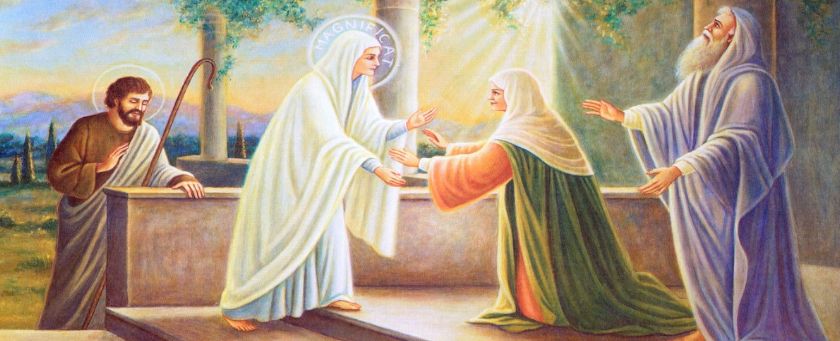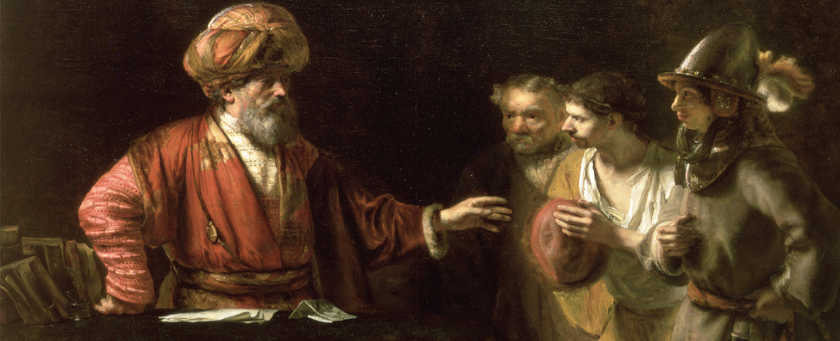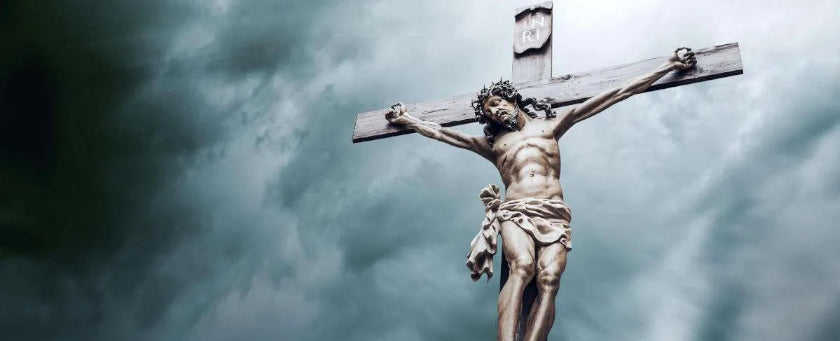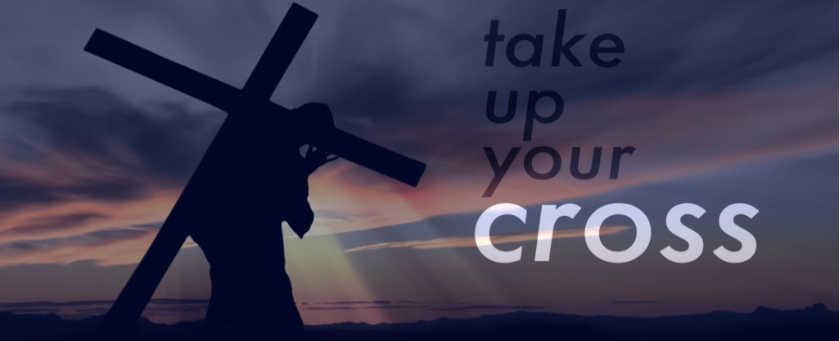Christ Foretold by The Prophets, Born of the Line of David
Fourth Sunday of Advent, Year C

Readings:
Mic. 5:1-4a; Ps. 80; Heb. 10:5-10; Lk. 1:39-45
Today is the fourth Sunday of Advent and we are just two days away from Christmas. Are you ready? Are you excited? For the last four weeks, the Church has encouraged us to look inward, to clear out the clutter, and to create a space for the Lord. The time of preparation is almost complete.
Today, the Word of God fills us with a sense of expectation. The prophet Micah foretells that the Messiah will come forth from Bethlehem-Ephrathah to take his place as shepherd. There was another king who came from Bethlehem and that was King David. He was the son of Jesse, who was an Ephrathite, which was consequently, one of the most unlikely of tribes to produce the next king of Israel. David was a simple shepherd out in the field, but would go on to be the greatest king of all Israel. It was he who united the twelve tribes; it was he who fortified Jerusalem; it was he who began the construction of the Jerusalem Temple, which became the central place of worship for all Israel. Therefore, the Messiah would not only be a descendant of the tribe of Benjamin, but also in the line of David, thus fulfilling the Davidic Covenant, establishing his dynasty forever, his throne as the days of the heavens.
There is another man in the line of David who bears mentioning. His name was Joseph, who was betrothed to Mary. Luke establishes this in the beginning of the infancy narrative, as it is written: “[T]he angel Gabriel was sent from God to a town of Galilee called Nazareth, to a virgin betrothed to a man named Joseph, of the house of David…” (Lk. 1:26b-27). In the ancient world, marriage effectively created a blood bond between husband and wife. As we read in the Book of Genesis, “That is why a man leaves his father and mother and clings to his wife, and the two of them become one body.” Marriage establishes a union, a family line. It is Joseph, who provides the link from Jesus to his ancestral father David.
It should be of no surprise, then, that Elizabeth, aware of Mary’s union with Joseph and the fact that she was with child, would cry out in exaltation when Mary entered her home. Elizabeth was the wife of Zechariah, who was one of the priests in the Jerusalem Temple. She would have been aware of the prophecies foretelling the coming of the Messiah. It would not have been much of a stretch, then, for her to make the connection between Zechariahs’ encounter with the angel Gabriel, her own miraculous pregnancy, and Mary’s betrothal to Joseph, who was in the line of David. And so, when she saw Mary entering the house with her own little baby bump, she could not help but exclaim, “Blessed are you among women, and blessed is the fruit of your womb. And how does this happen to me, that the mother of my Lord should come to me?”
Elizabeth’s words of praise to Mary have become part of the Hail Mary prayer: The first part having been taken from the angel’s greeting, “Hail Mary, full of grace, the Lord is with you;” then the second from Elizabeth saying, “Blessed are you among women, and blessed is the fruit of your womb.” Two expecting mothers carrying two of the greatest men ever to walk the face of the earth. It is of John whom Jesus says, “among those born of women, no one is greater than John…” (Lk. 7:28a), and it is of Jesus who John says, “one mightier than I is coming. I am not worthy to loosen the thongs of his sandals” (Lk. 3:16). The first, the son of a priest in the line of Levi; the second, a king in the line of David by birth, but King of the Universe by faith. And our King has come into the world not to do his own will, but the will of his heavenly Father. The author of the Letter to the Hebrews makes this clear, namely, that Jesus Christ, the Messiah, came not to follow the Law, which prescribed priests to offer sacrifices for their sins and the sins of the people, but rather, came to do the will of his Father. And it was the Father’s will that Jesus come into this world; it was the Father’s will that Jesus gather his flock; it was the Father’s will that Jesus offer himself as the sacrifice for sins on the cross; and it was the Father’s will that the Church be established to carry the message of the Gospel to the ends of the earth.
My friends, all this expectation leads us to one Person: Jesus. He was the one whose coming was foretold by the prophets; he was the one born of the line of David; he was the one to carry out the Father’s will; he was the one to rise from the dead and take his seat at the right hand of the Father; and he is the one who fills us with expectation for his coming, not only at Christmas, but every time we gather together at Mass. May we all take time over the next couple days to contemplate the awesome mystery of our Lord’s birth and may it fill us with holy expectation so that we might, in our own way, leap for joy before our Lord.





Twitter
Facebook
Pinterest
Email